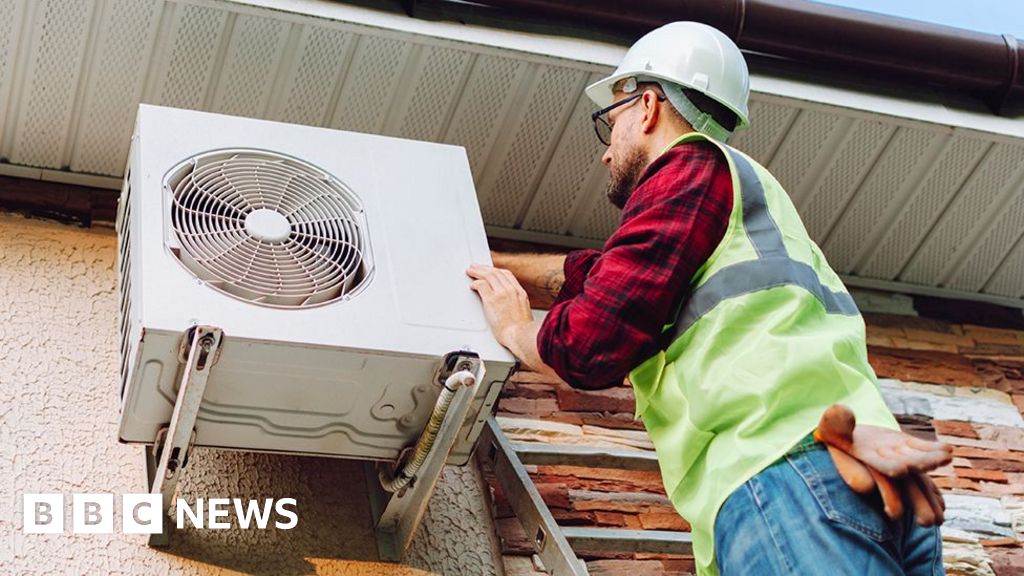Electricity bills should be cut so people feel more benefit from using green technologies like heat pumps in their homes, the government’s climate advisers say.
The Climate Change Committee (CCC) wants some levies and charges on electricity to be shifted to gas.
Consumers would then see a clearer benefit from switching away from gas boilers, which emit CO2 and are a major cause of climate change.
The Committee also wants the new government to reverse the steps taken by former Prime Minister Rishi Sunak to slow down carbon cutting plans.
The CCC says the UK is in danger of missing a 2030 climate target, which is seen as a critical step on the road to net-zero emissions by 2050.
Net-zero means the moment when the UK is no longer adding to the overall total of planet warming gases in the atmosphere.
Only one third of the actions that the UK needs to take to hit the 2030 goal are backed up by credible plans, the CCC says in its annual report.
The key actions that need to be taken include ramping up renewable energy, a faster switch to electric vehicles, and installing significantly more heat pumps in our homes to replace gas boilers.
There needs to be a big increases in tree planting and peatland restoration as well.
According to the CCC, rollbacks announced by Mr Sunak last Autumn were damaging to overall UK efforts.
In particular, Mr Sunak set out exemptions to the phase out of new fossil fuel boilers, due to come in from 2035.
These are expected to exempt about a fifth of homes.
But the CCC says this “could seriously undermine the UK’s ability to reach its targets.”
The CCC says that to get back on track for 2030, the proportion of homes using heat pumps for their heating needs to rise from 1% today to 10%.
To boost their uptake, the CCC wants the new government to lower electricity prices, which they say are artificially high because they include things like levies to pay for home insulation.
Even though heat pumps, powered by electricity, are more efficient and use less energy than gas boilers, that is not currently reflected in bills.
“We do think that this making electricity cheaper is the key thing,” said Dr James Richardson, acting chief executive of the CCC. He said countries like France and the Netherlands were seeing a real acceleration in uptake of heat pumps compared to the UK.
“That seems to be from this mix of upfront support, which we already have, and getting the relative prices of gas and electricity in a better balance, which we don’t have.”
The CCC says that these levies should be split more evenly with gas bills to give a greater incentive for electricity use.
Rolling back Mr Sunak’s plans on home heating is not the only aspect of previous policy the advisers want to see changed.
They want a reinstatement of a previous goal to end the sale of petrol and diesel cars by 2030, something the Labour government says it intends to do.
Some observers believe that Mr Sunak’s attempts to row back on the speed of the transition to net-zero knocked industry confidence in the UK.
“The UK is not the only place vying for renewable investment, you’ve got the EU, China and the US,” said Jess Ralston from the Energy and Climate Intelligence Unit.
“So the signal from the Sunak speech was very, very damaging. I think the hope is now from the energy industry that we get some more stability and long term direction.”
The CCC also recommends changes in planning to boost the number of electric vehicle charge points available.
They say that the shift to electric cars is already having an impact.
Despite an increase in car and van traffic across the UK last year, emissions from this sector fell by 1%, which the CCC says reflects the fact we now have around 1m electric cars on the road.
Their concern is that electric vans are not following the trend, accounting for only 6% of new sales.
Full details of all of the CCC’s recommendations can be found here.

